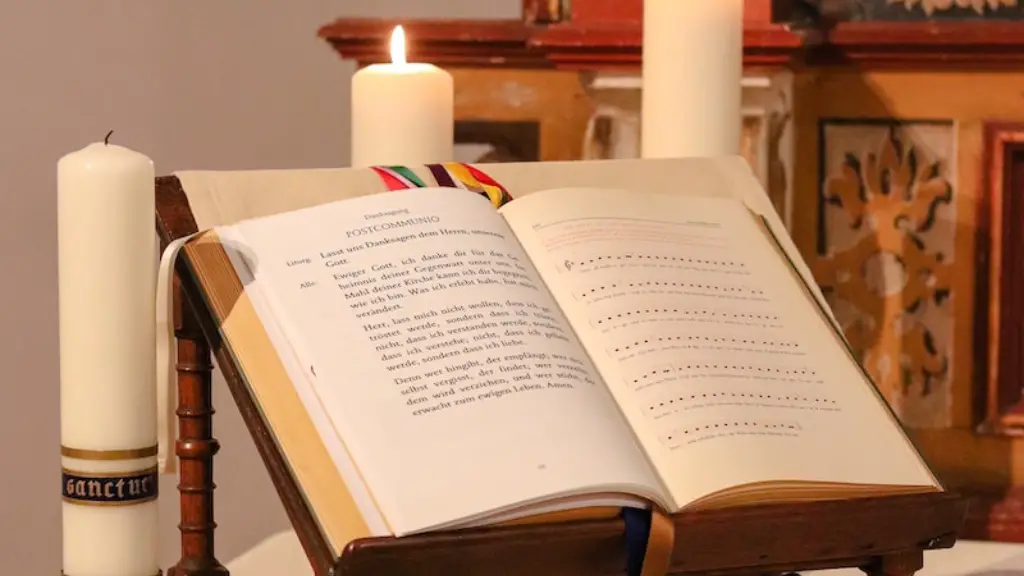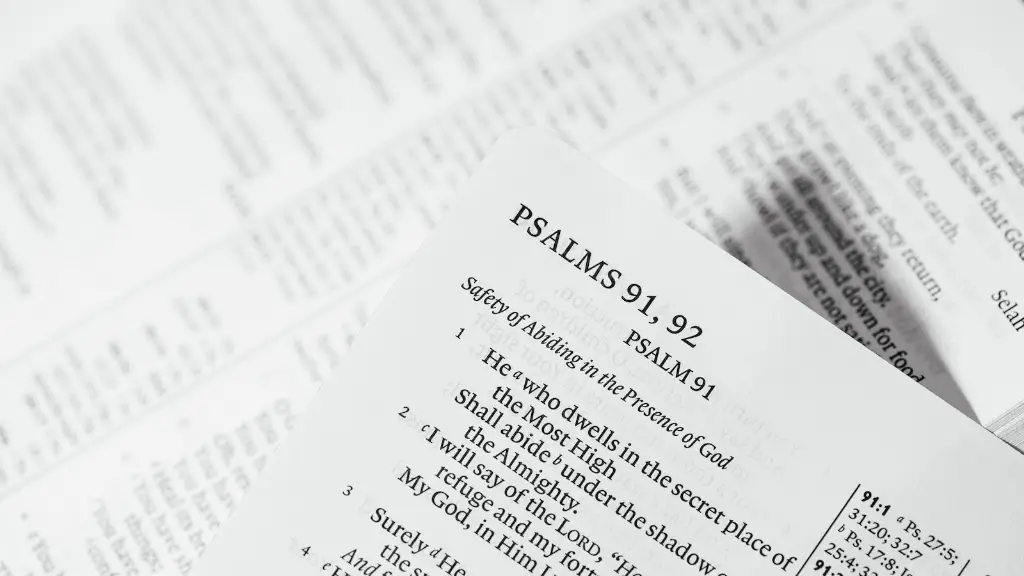Moses is a major figure in the Bible who played a major role in the Exodus of the Israelites from Egypt after 400 years of slavery. He was a shepherd, a prophet, a deliverer, a leader, and a lawgiver, and his influence still shapes the world today. Many of his writings and teachings are a part of the Bible and the Jewish faith practice. But what did Moses actually do in the Bible?
Moses was born during a time when the Pharaoh of Egypt ordered all newborn Hebrew babies to be thrown into the river, in fear that they would one day outnumber the Egyptians. However, Moses was found and adopted by the Pharaoh’s daughter. He was raised in the royal court and educated to learn all the ways of the Egyptians.
At the age of forty, Moses encountered God in the form of a burning bush and was told to go to the Pharaoh and demand that he let his people go. After a series of ten plagues, the Pharaoh finally relented, and the Israelites were allowed to depart.
Moses led the Israelites out of Egypt, through the Red Sea and the Sinai Desert. Along the way, he provided water from the rock, quail from the sky, and manna from heaven to feed the people. When the Israelites arrived in the Sinai Peninsula, Moses ascended Mount Sinai to wait on God, where he was given the Ten Commandments, as well as many other laws and instructions for how the Israelites were to live.
Moses was also an instrumental figure in the Exodus of the Israelites from Egypt. During their travels, Moses brought down the plagues to convince Pharaoh to let them go, parted the Red Sea so they could escape, and guided them through the Sinai wilderness.
Moses was known as the one chosen by God to deliver the Ten Commandments and other laws to the Israelites. He was able to influence the Israelite people despite having no royal line or royal power. This feat was particularly remarkable, as the Israelites were an enslaved people with no leader and no one to turn to for guidance.
Moses also showed tremendous strength of character in dealing with the Israelites’ distrust and rebelliousness. Despite constant grumbling and complainting, he kept his patience and managed to lead them through the desert.
The Promised Land
Although Moses led the Israelites out of slavery, his journey was unfulfilled as they never reached the Promised Land. Instead of entering the Promised Land himself, Moses passed the baton of leadership to Joshua, and the Israelites entered the Promised Land under his direction.
Moses’ significance in the Bible is significant due to his role as the messenger of God. He delivered the Ten Commandment to the Israelites, and he is an example of a leader who is faithful to God and puts His people’s needs before his own.
Moses also serves an example to all of us of how to be faithful to God and respond to the signs God gives us. He showed faith and courage, and inspired the Israelites to trust God and follow him.
Moses’s Influence and Legacy
Moses’s influence on the Bible and Judaism cannot be overstated. He laid down the moral code in the form of the Ten Commandments, and his teachings are still practiced and respected in Jewish culture today.
His story has been recounted in many books and movies, and his teachings remain relevant to millions of people today. People of all faiths can look to Moses’ story of faith and courage, and be assured that God is present in the world to help us in our times of trouble.
Moses’s legacy lives on today in the form of his teachings and laws, and an example of what it is to be a good leader, who puts his people first, and is unafraid to stand up for justice.
Moses’ Teachings
Moses’ teachings are still relevant today, and his importance in the Bible is unmistakable. His teachings remind us to be obedient and trust God, and to live our lives in faith and righteousness.
Moses’ teachings about loving our neighbors, loving God, and living an ethical life are timeless, and a reminder to all of us that these lessons are still important today.
Moses’ legacy is continued in the teachings of the Bible and in many contemporary religious movements such as Christianity and Judaism. His story serves as an example of faith and courage, as well as a reminder that we are all accountable to God.
Worship and Rituals
Moses is also remembered in the form of religious practices, such as the worship of YHWH, and the observance of the Passover. He is remembered through art and literature, and his story is still told throughout the world.
The Exodus of the Israelites and their eventual freedom, as well as their continued faith in God, were due largely in part to Moses’ leadership and teachings. His presence and influence in worshipping God is still seen to this day.
Moses was also an important part of the spiritual history of the ancient Israelites. His leadership and vision for the nation made it possible for them to eventually enter the Promised Land.
Moses’ teachings, presence, and influence remain relevant to many people today, and his story is an integral part of religious practices and worship.
His Writings
Moses was also a prolific writer, and his writings form the basis of much of the Bible. He wrote five books known as the “Pentateuch,” or the “Five Books of Moses.” These books include “Genesis,” “Exodus,” “Leviticus,” “Numbers,” and “Deuteronomy.”
In his writings, Moses recorded the laws and instructions of God that the Israelites were to follow, and his writings served to guide the people throughout their journey in the wilderness.
Moses’ writings were inspired by God, and provided the Israelites with the guidance to live a life that is pleasing to God. His writings serve as an example to all of us today of how to live a moral and ethical life that is pleasing to God.
Moses’ writings and teachings are still studied today and have shaped the way many people look at justice, morality, and law. His writings provide a window into an otherwise unknown world and are an essential part of understanding the Bible.





